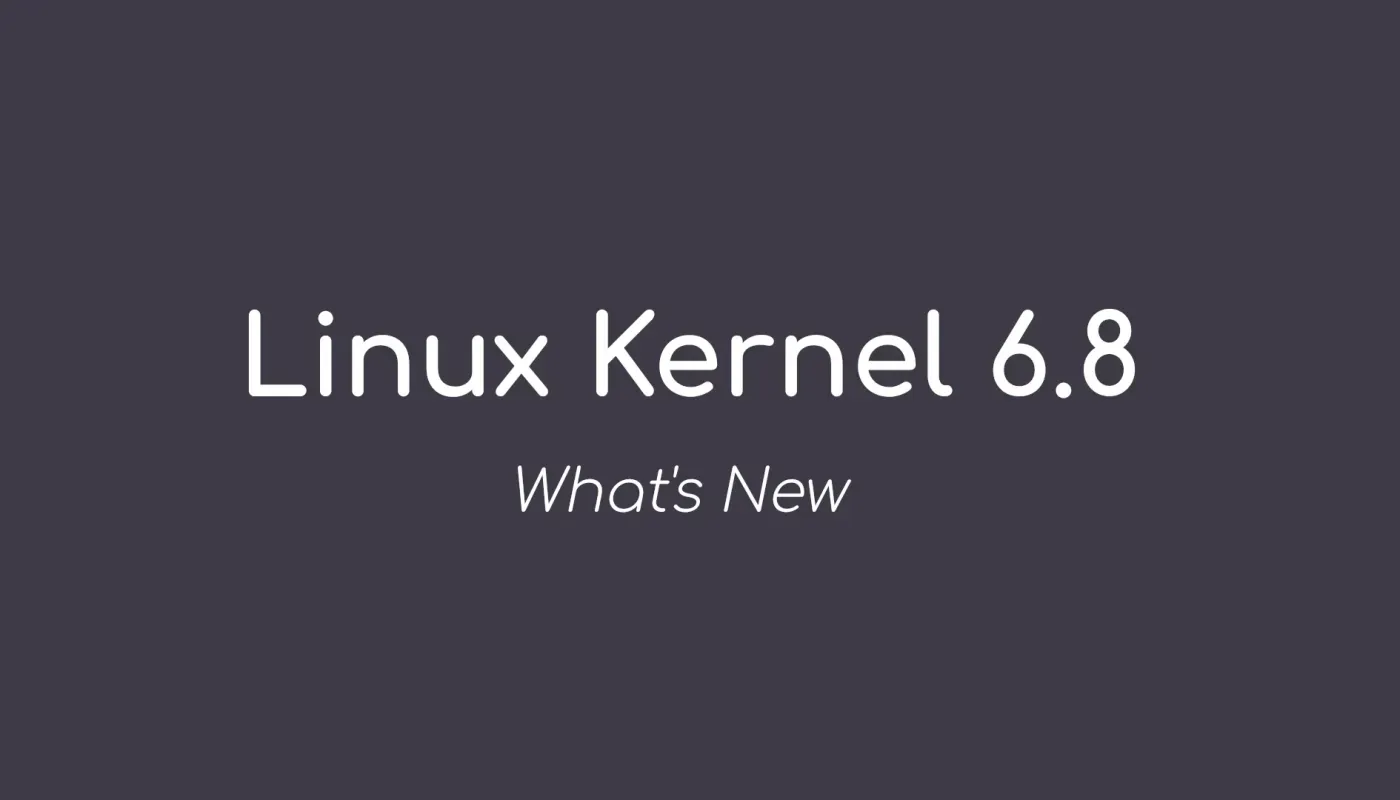Linux Kernel 6.8 Officially Released, Here’s What’s New
-

Linus Torvalds announced today the release and general availability of Linux kernel 6.8, the latest stable version of the Linux kernel that introduces several new features and improvements.
Highlights of Linux kernel 6.8 include LAM (Linear Address Masking) virtualization and guest-first memory support for KVM, a basic online filesystem check and repair mechanism for the Bcachefs file system introduced in Linux kernel 6.7, support for the Broadcom BCM2712 processor in Raspberry Pi 5, AMD ACPI-based Wi-Fi band RFI mitigation feature (WBRF), zswap writeback disabling, fscrypt support for CephFS, a new Intel Xe DRM driver, and a multi-size THP (Transparent Huge Pages) sysfs interface.
Also new is initial Rust support for the LoongArch architecture, a UFFDIO_MOVE uABI operation to allow pages to be moved within a virtual address space while avoiding page allocation and memcpy done by UFFDIO_COPY, the KSM advisor feature to automatically manage the kernel samepage merging subsystem, support for the SMB file system to create block and character special files, and Rust support for creating network PHY drivers.
Linux kernel 6.8 also adjusts the timing of the fscrypt keyring destruction to prepare for Btrfs’s fscrypt support, adds various networking optimizations for better cache efficiency, updates the perf tool with support for data-type profiling, implements SBI-based suspend to RAM support and support for enabling the V extension in kernel code for the RISC-V architecture, and adds host-side support for Intel’s Trust Domain Extensions (TDX).
Furthermore, Linux 6.8 adds CSI-2 and MIPI DisCo for Imaging support to the ACPI device enumeration to allow MIPI cameras to be enumerated through the platform firmware on systems using ACPI, optimizes NUMA balancing and Deadline Scheduler, and adds support for threaded interrupt handlers for the ACPI SCI and the dedicated EC interrupt on systems where the former is not used allowing all ACPI code to run with local interrupts enabled.
There’s also Intel Sierra Forest and Grand Ridge intel/cstate PMU support, Intel Granite Rapids, Sierra Forest, and Grand Ridge uncore PMU support , support for the zswap subsystem to shrink the zswap pool based on memory pressure, LPA2 support for KVM on AArch64 (ARM64), and a goal-oriented feedback-driven quota auto-tuning mechanism for the DAMON memory-management facility.
Hardware support has been improved by adding IRQ override quirks for ASUS ExpertBook B1502CGA and ASUS Vivobook E1504GA/E1504GAB laptops, some TUXEDO InfinityBook Pro laptops and other TongFang GMxXGxx models, adding support for the Acer Predator PHN16-71 laptop, adding a new driver for Silicom network appliance EC LEDs and GPIOs, adding AMD PMC / PMF improvements and new platform support, as well as Intel PMC / PMT / TPMI / uncore-freq / vsec improvements and new platform support.
The WMI bus driver has been improved as well, the intel_pstate cpufreq driver received Emerald Rapids support in no-HWP mode, the ACPI thermal zone driver received Thermal fast Sampling Period (_TFP) support, the AMDGPU driver received color management support for the Steam Deck, there’s a new driver to support the Adafruit Seesaw gamepad device, and there are also several improvements for Android devices.
There are also new drivers to support MPS Multi-phase mp2856/mp2857 controllers, MPS Multi-phase mp5990, Gigabyte AORUS Waterforce AIO coolers, AMS AS6200 temperature sensors, AMD Family 19h Model 8h, Dell Optiplex 7000 Tower Desktop, Ilitek ili2901 touchscreens, Nintendo NSO controllers (SNES, Genesis, and N64), as well as lot of networking and sound-related devices (see the full list here and here).
Linux kernel 6.8 will be a short-lived branch supported for only a couple of months. It will be succeeded by Linux kernel 6.9, whose merge window has now been officially opened by Linus Torvalds. Linux kernel 6.9 is expected to be released in mid-May 2024. Meanwhile, you can download Linux kernel 6.8 right now from Linus Torvalds’ git tree or the kernel.org website.
“This all obviously means that tomorrow the merge window for 6.9 opens, and I already have several pull requests pending,” said Linus Torvalds. “Thanks to everybody who sent in early pull requests, you know who you are. But before that excitement commences, please do spend a bit of time with the now boring old status quo and give 6.8 a good test, ok?”
